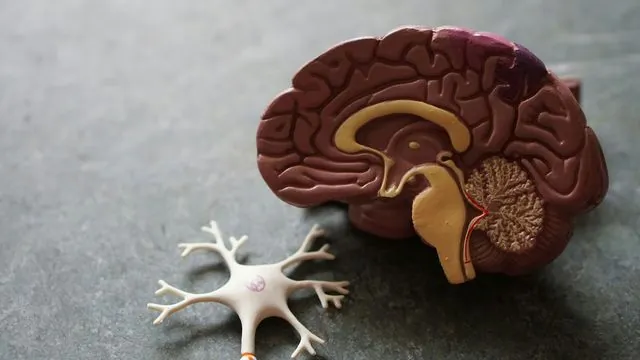
Shocking Discovery: Microglia Accelerate Alzheimer’s Damage in Patients with APOE4 Gene
2024-11-05
Author: John Tan
Shocking Discovery: Microglia Accelerate Alzheimer’s Damage in Patients with APOE4 Gene
In a groundbreaking study that could redefine our understanding of Alzheimer’s disease, researchers at the Gladstone Institutes have found that microglia—immune cells responsible for maintaining brain health—actually exacerbate damage in the presence of the APOE4 protein. This protein is known as the most significant genetic risk factor for Alzheimer’s, and the study sheds light on its troubling relationship with brain health.
The research team devised a novel model to investigate Alzheimer’s more closely by transplanting human neurons that produce the APOE4 protein into the brains of mice. This innovative approach allowed scientists to observe the real-time effects of APOE4 in a living organism.
What they discovered was alarming: when microglia were removed from the mix, the presence of APOE4 did not lead to the expected buildup of harmful amyloid plaques and tau tangles—two protein aggregates that are key indicators of Alzheimer’s disease. “Our findings highlight the dual role of microglia in the context of APOE4,” explained Dr. Yadong Huang, a senior investigator at Gladstone. He emphasized that targeting microglia could revolutionize treatment options for Alzheimer’s patients.
A Deep Dive into APOE Genetics
The human body features three major APOE protein variants: APOE2, APOE3, and APOE4. While APOE2 is considered protective against Alzheimer’s, and APOE3 carries no increased risk, APOE4 significantly heightens the likelihood of developing this devastating disease. Alarmingly, approximately one in four Americans carries at least one copy of the APOE4 gene, with about 3% carrying two copies, slashing their cognitive resilience by a staggering factor of twelve compared to those with APOE3.
This new study is particularly crucial since previous animal models failed to adequately replicate the characteristics of late-onset Alzheimer’s found in humans. The introduction of human neurons into a mouse model allowed for more accurate observations of how APOE4 influences the disease as it manifests in older individuals.
Microglia’s Role in Alzheimer’s Amplified
In this pioneering approach, the researchers demonstrated that human neurons producing APOE4 not only lead to an increase in amyloid plaques and tau tangles but also instigate harmful microglial activation. By using a selective drug to deplete microglia from the chimeric mice brains, they were able to significantly reduce levels of these toxic aggregates.
This revelation is vital for future Alzheimer’s research as it indicates a troubling synergy: APOE4 triggers microglia, which in turn contribute to the formation of protein aggregates. “This study illuminates how these immune cells transition from protectors to aggressors due to the presence of APOE4,” noted Antara Rao, the lead experimenter on the team.
Potential Pathways for Treatment
The implications of this study are monumental. The findings suggest that pharmacological strategies that either lower APOE4 levels in neurons or modify the activity of microglia could pave the way for new treatments aimed at slowing or preventing the progression of Alzheimer’s, particularly in individuals with the APOE4 allele.
However, caution is warranted. The researchers acknowledge that further investigations are necessary to determine the safety, timing, and potential side effects associated with targeting either microglia or APOE4 in human patients.
“This is just the beginning,” Huang concluded, expressing optimism about their new mouse model opening doors to explore the roles of other cellular players in Alzheimer’s disease. As research continues, hope remains that these findings may one day lead to groundbreaking therapeutic interventions for millions affected by this disease.
In summary, understanding the intricate interplay between microglia and APOE4 could be pivotal in the fight against Alzheimer’s. As research progresses, we may be on the brink of discovering not only how to fight back against this relentless disease but potentially how to prevent it altogether. Stay tuned for more updates on this exciting journey into Alzheimer’s research!


 Brasil (PT)
Brasil (PT)
 Canada (EN)
Canada (EN)
 Chile (ES)
Chile (ES)
 España (ES)
España (ES)
 France (FR)
France (FR)
 Hong Kong (EN)
Hong Kong (EN)
 Italia (IT)
Italia (IT)
 日本 (JA)
日本 (JA)
 Magyarország (HU)
Magyarország (HU)
 Norge (NO)
Norge (NO)
 Polska (PL)
Polska (PL)
 Schweiz (DE)
Schweiz (DE)
 Singapore (EN)
Singapore (EN)
 Sverige (SV)
Sverige (SV)
 Suomi (FI)
Suomi (FI)
 Türkiye (TR)
Türkiye (TR)